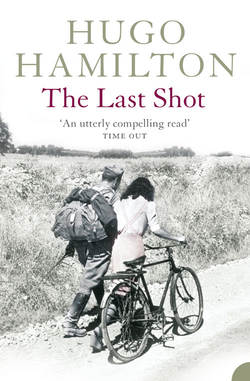Читать книгу The Last Shot - Hugo Hamilton - Страница 13
9
ОглавлениеThe first time I went to Laun – now Louny – was late in 1985. First impressions are those of a sleepy town with a massive bus station which is completely out of proportion to the size of the town. The bleak tar-macadamed bus station offers little shelter except for a row of covered passenger islands. The bus routes which pass through the station give you some idea of the industry and crop farming in that part of Bohemia. It’s like being dropped off at the edge of an industrial estate. I arrived there in the afternoon, in October, the best time to travel anywhere.
Around the bus station there was nothing but derelict land, overgrown with weeds. In the distance, I could see some isolated high-rise apartment blocks. The town itself had no colour. It’s got an old square and a remarkable church. But it’s not a place you would see on a tourist brochure. The people at the tourist office in Prague looked surprised that I wanted to go to Louny. What would a foreigner want in Louny? There were many places of interest, with ancient castles, like Kutná Hóra, or Karlovy Vary. And then there was Theresienstadt, not far from Louny, Czechoslovakia’s Nazi transit camp where the ashes of 20,000 Jews were said to have been thrown in the river.
All I really wanted was to see Louny. There are places like that where you just want to be able to say: I’ve been there, I’ve seen the place.
There was little to see in Louny. Coming from West Germany, as I did, the place looked uninteresting, like a faded water-colour. The place that history left behind.
The shops were sparsely stocked with tins of beans and tins of stew. Everywhere in Czechoslovakia, I saw these neat pyramids of cans in the shop windows. There was a queue outside one of the shops in Louny. From Prague, I had learned that the sight of a queue was the sign of something worth buying. It seemed to be a bookshop.
I went into the pub U Somolu on the main street and had a drink, knowing that all Czech pubs have a habit of closing early. I would have spoken to some of the men in the pub, but they spoke neither English nor German and I didn’t have a word of Czech. They looked at me. They must have wondered too what brought a German to Louny. I would like to have told them where I was really from. But it was too complicated.
I walked around the streets for a while. In the square, I sat down beside the statue of Johann Huss. The warm October sun hit the square at an angle. After a while the shadow of the buildings edged up across my face and reached the base of the façades on the other side. The loudspeakers which hung around the square suddenly came alive. First with a crackle and a lot of background noise, perhaps that of someone fumbling with the microphone, the voice eventually boomed out over the square. I had no idea what it was saying.
I tried some more people with English and received a bewildered stare each time. Then I wondered if this town, on the edge of the Sudetenland according to pre-war maps, might still have some old people who spoke German.
People shrugged a lot. I could see that they were dying to help me but were unable to. One man kept asking me questions enthusiastically in Czech. At the post office, somebody eventually pointed to an old woman who spoke a little German. I asked her about the garrison outside the town, at the top of the hill. She shook her head.
‘You cannot go there,’ she said. ‘Nothing for tourists.’ She waved her index finger.
I asked her what it was being used for. Who occupied it now?
‘Russen,’ she said.
It was not something she wanted to elaborate on. I had already asked too much. She walked away.
Since there was nothing else to do in Louny, I decided to walk back beyond the bus station up the hill to take a look at the garrison. It seemed like an impossible place to defend, surrounded only by a low wall and some rusted barbed wire. Around to the front of the garrison, along the wall, there was a large red star. That was as far as I went.
The journey back to Prague takes around an hour. The bus was full of workers commuting back to the towns along the way. A girl beside me kept falling asleep with her head repeatedly sinking on to my shoulder. Perhaps she was a factory, girl. She wore overalls underneath her coat. Every now and again she woke up and realized that she had begun to lean against me. But she soon fell asleep again. Whenever the bus stopped, she sat up, startled, looking out through the windows as though she had gone too far.
